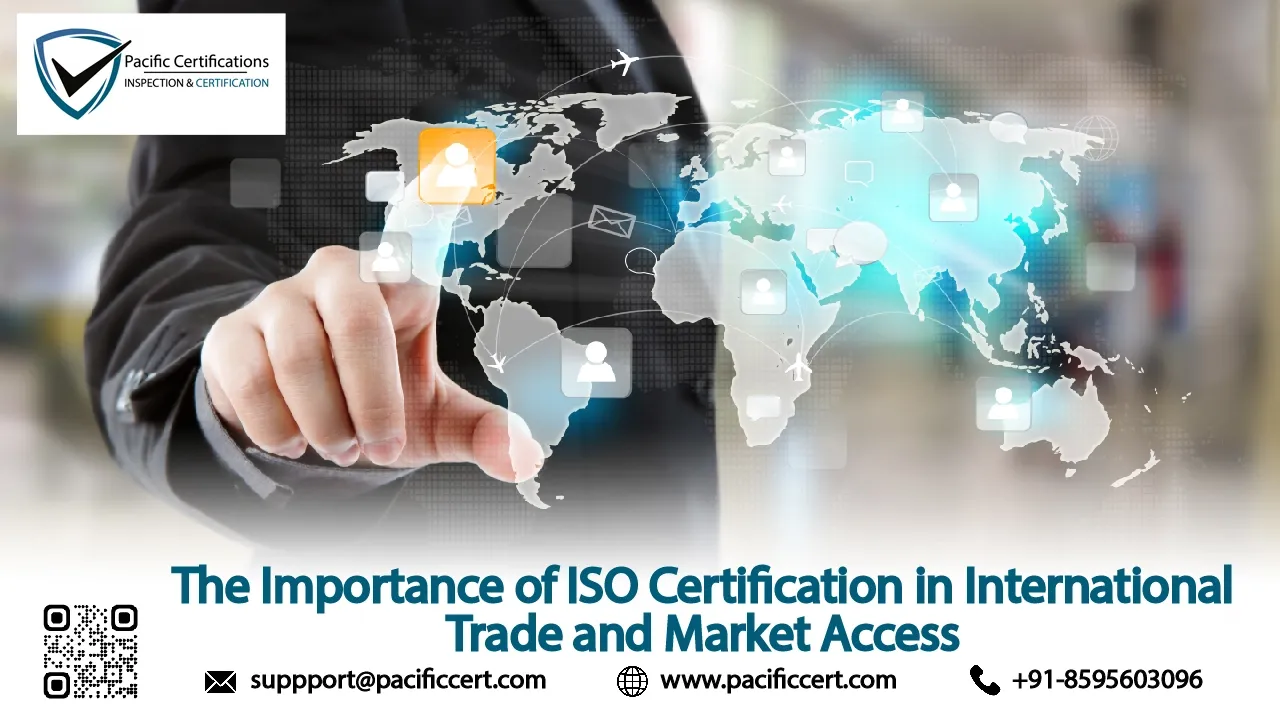The Importance of ISO Certification in International Trade and Market Access

In a globalized economy, businesses are constantly seeking to expand their reach and tap into new markets. ISO certification is one of the most impactful ways to achieve this. ISO standards can be found anywhere in the world, and getting certified is important for businesses that want to illustrate their dedication to quality, safety and operational excellence. In this blog, we will reflect on the role of ISO certification in international trade and market access, and how the process of getting ISO certification can help your organization compete in the global marketplace.
For assistance, contact us at [email protected].
Introduction
As markets evolve, business must also evolve to fit the expectations of customers and stakeholders in different areas. It is here that ISO certification is a key player in demonstrating products and services are produced to the international standard. ISO is not just about complying, it's about improving organizational processes, reducing issues and risks and obtaining and increasing international credibility.
ISO certification is a necessary means to help businesses in their pursuit of reaching new markets, whether domestic or international. When a business satisfies ISO requirements, businesses can show to clients, suppliers and regulator authorities that their practices align with globally recognized criteria on quality, safety and environmental performance. Let's examine the key impacts that ISO certification has on international trade and market access.
Enhancing Credibility and Trust in International Markets
First, ISO Certification Empowers Credibility and Trust in International Markets. ISO certification is universally recognized as an indicator of quality and trust. When entering an international market, companies must provide potential customers and or partners with a high assurance that they are meeting quality standards. Certification, like ISO 9001 for quality management or ISO 14001 for environmental management, will help ensure that businesses earn the trust of international customers and suppliers.
In many industries, a customer or supplier expect businesses to have ISO certification as a condition of engaging in business. This is crucial because certification shows that your business is committed to continual improvement, meets quality standards, and follows best practices. This accountability is even more pronounced in strongly regulated sectors of the economy, like manufacturing, food production, pharmaceuticals and health care, where adherence to international standards are unwritten requirements in many situations.
Facilitating Compliance with Global Standards and Regulations
ISO certification is vital to ensure that businesses follow global regulations. Many international markets have stringent regulations regarding the quality and safety of product, environmental regulations and data security. ISO standards can provide a framework to meet these regulations.
By achieving ISO Certification, organizations can ensure that they are meeting regulatory requirements in different countries and will minimize the risk of facing legal issues, penalties, and fines. For instance, ISO 13485 standard are pertinent if an organization is manufacturing and selling medical devices (this certification shows compliance with regulations worldwide, such as EU MDR or FDA in the United States) and makes it easier to enter global markets
Opening into new markets, and access to new business opportunities
ISO Certification can allow organizations access to new markets, particularly when adherence to international standards are a prerequisite to do business. Many countries and regions require organizations to be ISO certified in order to participate in government contracts and tenders, or even for private sector contracts.
For example, Governments often require suppliers to meet ISO 9001 standards for quality management when tendering for public projects, and the European Union may have to meet specific ISO standards (for instance, ISO 14001 for environmental management), to be compliant with regulations in the regions environmental laws.
For assistance, contact us at [email protected].
Improving Supplier Relationships and Strengthening the Supply Chain
ISO certification also improves supplier relationships, thereby boosting supply chain management. Suppliers, distributors, and partners are generally more inclined to work with a company with ISO certification because it shows a commitment to quality, reliability and regulatory requirements. By obtaining ISO certification, the business shows to suppliers that they meet international standards as determined by ISO, which makes them more appealing as a partner.
For example, a manufacturing company is more likely to connect with reputable suppliers around the world who conform to ISO certifications and standards as they know they have commitment to quality management. It is much easier to do business with companies that have a shared commitment to quality management principles.
Gaining a Competitive Edge in International Trade
ISO certification is a strong motivator for gaining an edge in international markets. Now many businesses see ISO certification as a minimum requirement to compete internationally. Without certification, businesses risk losing out on lucrative opportunities - especially when bidding for contracts or entering new markets.
ISO certification offers businesses a unique selling proposition (USP) to help distinguish themselves in a crowded market. It tells customers that your business is compliant with internationally recognized standards and dedicated to providing high quality goods and services. It does not matter if you are selling electronics, automotive parts or medical devices; obtaining ISO certification will help establish your organization as a leader in your industry.
For example, in the tech sector clients demand ISO/IEC 27001 (Information Security Management) certification more frequently as they become increasingly concerned about data security and privacy. Obtaining certification for Information Security Management places the onus on the business to protect customers data and provides more credibility for their services compared against the competition.
Streamlining International Trade Operations
ISO certification can also assist businesses with their international trade logistics by providing a consistent and standardized method for managing processes. This is particularly relevant for businesses that may be supplying multiple international markets with different regulatory environments.
For example, ISO-certified companies typically have standardized documentation including contracts, invoices, and quality reports, which eases the process of cross-border transactions and minimizes the chance of errors and issues when completing these activities. ISO certified processes can also help businesses mitigate logistics problems, improve management of international shipments, and make sure their products meet the quality and regulatory requirements to introduce products into foreign markets.
Contact Us
Pacific Certifications is here to guide your organization through the ISO certification process. Whether you're looking to expand into new markets or ensure compliance with global standards, our team of experts is ready to assist you every step of the way.
For assistance, contact us at [email protected].
Visit our website at www.pacificcert.com.
Ready to get ISO certified?
Contact Pacific Certifications to begin your certification journey today!
Read more: Pacific Blogs

